- Home
- Tim Lebbon
Pieces of Hate Page 7
Pieces of Hate Read online
Page 7
Gabriel shrugged. “Those men had been hanging there for days. The sun will drive a man mad in that time. Whoever did that—”
“Perry said you were questioning one of them about a demon.”
“I was afraid,” Gabriel said. “I didn’t want to be near a ship with something dangerous on it.”
“You believe in demons, stranger?”
Gabriel did not answer.
“I do,” Parker said. “Though I’ve yet to see one.”
“Don’t wish that upon yourself,” Gabriel muttered.
The captain laughed, that false guffaw that hid so much. “Don’t be concerned for me,” he said. “In the meantime, I think I’d prefer you in your cabin.”
“I want to—”
“No choice,” the captain said, and he pushed a knife into the back of Gabriel’s leg. “There. I never clean this knife, and you’ve the blood of every damned cur I’ve ever killed in you now.”
Gabriel fell, the movement twisting the knife more, grating it against bone and opening the wound to fresh air. He gritted his teeth and growled, determined not to cry out. He’d had much worse.
Captain Parker withdrew his blade none too gently and slid it back into his leather belt, still wet. “Now you stay out of trouble, stranger, and maybe I’ll put you ashore alive. I don’t like you—more’s the truth, you worry me—but you still interest me, and a man who continues to interest me earns a chance.” He walked away, leaving Gabriel bleeding onto the deck.
A few of the crewmen offered him toothless smiles. Gabriel smiled back, but it did not faze them. This was a tight crew, for sure.
He made it back to the cabin without whimpering from pain, but as he fell onto his cot he let out a groan that brought Sparks scampering over.
“You’re stuck!” the clergyman said.
“It’s nothing.”
“For nothing, there’s a lot of blood. If you don’t dress that the rats will gnaw at you when you’re asleep.”
“Maybe I’ll do as you, and not fall asleep.”
Sparks stared at Gabriel’s blood-soaked trousers, fascinated and disgusted. He slowly backed away from the cot, as if a wound like this could be catching. “I‘ll get some water for you to wash it out.”
“Rum punch would be better.”
Sparks shrugged. “If I can, I will.” He left the cabin with several backwards glances.
Gabriel took off his trousers, turned his leg and tried to examine the wound. The blood flow was still heavy, but at least the copious bleeding would clean the wound of infection. But being stuck like this aboard such a ship—where the most pleasant smell was bilge water, and the glaze of rot lay over everything—was not ideal. He would have to take care over the next few days.
Sparks returned with a cup of rum, saying he had traded it for a prayer. Gabriel lay on his side, took the cup from the clergyman—who still stood away from the cot—and poured it into the wound. He allowed himself one long scream. Daylight faded quickly, darkness took him and the smell of pine welcomed him into unconsciousness.
Back in the clearing, everything had changed forever.
The fallen oak tree was standing once again, lush and young, healthy and strong. The broken stone altar was whole, free of creeping vegetation. And the sigils carved into the trees around the clearing were white and moist with sap, as if they had been cut there only hours before.
Gabriel ran into the clearing and collapsed to his knees, weeping and shaking, too shocked by what he had witnessed in the village to truly comprehend what he was seeing here. He registered the changes to the clearing, but they meant nothing to him. The sight of his daughter’s half-closed eye filled with blood was much more terrifying than a tree that had righted itself after decades lying down. His wife’s opened stomach was more intolerable than a broken sacrificial altar that had bonded back together. And his baby son’s smile, cut into his face forever by the vicious blow of a sword, blinded Gabriel to the sight of old magic made new.
He crawled to the centre of the clearing, curled up next to the altar and cried. Hot tears blurred his vision so he cried some more. They were all dead. His family, the whole village, slaughtered and left in a pile like sick cattle. The men were mostly beheaded, the women stripped and raped and hacked to death with swords, the children . . . the children . . .
He thought of his daughter’s bloody face and tears would not haze this image. It was cast into his mind’s eye, a place where tears, no matter how hot, would never reach. He would need something else to banish the image of his family as he had last seen them, and remember them as they were alive.
Feed your hate.
For a while the words meant nothing, as if they were yet to be spoken. He tried to remember his daughter running in the woods, finding pinecones and mushrooms, but she was dead as she ran, bleeding onto the ground, the wounds that would eventually kill her pouting in her flesh. His son smiled at him from a blanket on the ground, gurgling in delight at the sight of a flock of birds circling overhead, but his baby’s skin was gashed and marred by the injuries that would be the death of him. Gabriel remembered the last time he and his wife had been together, the smile on her face as she moved astride him, biting her lip so as not to make a noise and wake the children, and as he moved his hands down over her breasts and stomach they were covered with gore, recognising the future in every gasp and sigh.
Gabriel cried out. A buzzard took flight and added its lonely cry to his; perhaps it too was alone. Gabriel lay on his back and watched the bird circle higher and higher, and as it drifted over the woods toward the village he closed his eyes again.
Feed your hate. The man with the snake in his eye had said that, the conjurer, just as Gabriel had noticed the sounds and smells of chaos.
He opened his eyes and sat up. The clearing had changed, renewed. The tree that the conjurer had tapped when he said those words was over to the left, its trunk scarred by the magical symbol that had been carved there.
Gabriel stood, approached the tree—
Feed your hate!
—and held out his hand. He stretched his fingers, reached farther, not wishing to approach any closer than he had to, and his fingertips touched the moist flesh of the tree.
In that second, in a shattering blast of realisation and enlightenment, Gabriel was given his future. One part of it—the opportunity for revenge—he welcomed greedily. He heard the name of Temple, saw the Twin in all his grotesqueness, and knew something of his unnatural nature. He saw Temple astride a horse in the burning village, and that was enough. He felt his own pathetic life bleeding away to be replaced by something less real, an abnormal existence that had been given him to aid his pursuit of the demon. Yes, the chance for revenge was good.
But as for the rest of it, Gabriel knew that he was damned.
The fever lasted for three days.
He had vague memories of Sparks by his side, giving him sips of water, mopping his brow, praying, the clergyman’s lips bleeding as he bit them in an attempt to remain awake. Gabriel’s whole body was rocked by the wound, and he remembered brief snatches of consciousness where the whole world seemed to turn upside down; the boat swaying, timbers groaning, Sparks vomiting in the corner. Other times he had awakened to such stillness and silence that he wondered whether they were really memories at all.
When Gabriel eventually came around enough to sit up, it was to find Sparks asleep on the floor.
He stood slowly, holding the cot for support, careful not to step on the snoring clergyman. His leg burned, but when he reached down he felt the wound already closed and knotted into scar tissue. Another scar on a body covered with them, yet refreshingly this one was not caused by Temple. He wondered what Sparks had thought of that, or whether he’d even looked. Would a man of God be afraid of the dark, unknowable magic that aided such healing? Normally yes, but Sparks was not a normal man of God. He was, Gabriel had begun to think, extraordinary. And despite himself he could not help liking the clergyman.
&nb
sp; Gabriel’s clothes were stinking and sodden from the days and nights of fever, and it seemed that Sparks’s care had gone only so far. He stripped, washed with a damped rag and stole some clothes from Sparks’s bag. He felt no guilt; he needed them more than the clergyman. And besides, there was a good chance that they would never see each other again. He dressed and strapped on his pistols, amazed to find them still beneath his cot. His knives next, then the small axe at his hip, and finally his pocket pistol. He needed nothing more than food and drink, but arming himself at least made him feel safer.
Outside, he could hear sounds that told him they were approaching Port Royal. The crew were livelier than ever, drunk, singing and shouting, clashing cutlasses and striving to outdo each other with plans for their forthcoming debauchery.
Inside, the wounds that gave a history of Gabriel’s last several hundred years had started to burn.
Temple was close.
Port Royal was a stench on the world. Gabriel had heard much about it, but like many of the wild, wicked and evil places he had visited, it could not be understood unless experienced firsthand. Yet even seeing it from the moored ship, he knew that the stories were true.
By the time he slipped from the brigantine the bulk of the crew had already left for shore. The unfortunate few chosen for first guard watched him miserably, not even challenging him as he left. Strange that Captain Parker had simply abandoned him with no further questioning . . . but perhaps the pirate thought that infection would be the death of him. Gabriel felt a weight leave his shoulders as he walked down the gangway, and yet a far greater danger awaited him somewhere in this warren of filth and lawlessness.
There were maybe two hundred ships of all shapes and sizes in the harbour. Coastal sloops, galleys, several frigates, brigantines, hoys, and two captured Spanish galleons which now proudly displayed their captor’s Jolly Rogers, bloody red flags decorated with victims’ spilled blood. Most of the ships were owned by privateers and pirates; there were very few national flags. They bobbed gently against each other in the gentle swell, rubbing timbers and sending groans and creaks across the water into the town of Port Royal itself.
Gabriel paused at the harbour’s edge and surveyed the docks. From here he could see much of the town, and it showed itself to be just the outpost of debauchery, danger and cutthroats that he had heard. Hundreds of sailors busied themselves along the harbour, loading ships with supplies or unloading booty or prisoners. Others mingled outside roughly built taverns, drinking, laughing, singing, fighting, sleeping the sleep of drunks. Whores sauntered among them, virtually naked, dirty and bruised, doing their best to single out sailors who had just arrived in the hope that they would have the most booty to spread around. The harbour smelled of the sea, and plenty more besides. There was the stench of freshly landed fish, and the rank odours of meat rotting in stores and taverns along the front. Brine mingled with spilled booze, a heady aroma that the warm breeze did little to alleviate. Gabriel also caught a whiff of blood, though he could not tell where it came from. Perhaps so much had been spilled here that the smell stuck to the town, like stale ale beneath a tavern’s floorboards.
He started off along the front, approaching the main area of taverns, whorehouses and gambling dens. There was a small church on his right, its stone steps worn with use, and he wondered at the type of clergyman that would remain here in this hellish place. Sparks, perhaps? But there was much more to him than that. When Gabriel had been half out of his mind with the fever, he remembered a few things Sparks had said to him, perhaps in response to Gabriel’s delirious mumbling. You’re hunting a demon, he had whispered into Gabriel’s feverish ear. I’ve seen one also. And another time, his voice tainted with a righteous anger: You may think I’m fleeing, but I carry my faith with me. He hoped that Sparks would find whatever it was he sought.
Gabriel felt uncomfortable with the thought of having a friend. It did not suit him. And yet somewhere in Sparks he had seen an echo of himself––a man on a mission he had not chosen and did not understand. He smiled, shook his head, and a hand closed around his arm.
“Don’t smile at yourself, sailor, smile at me.” The whore was probably barely sixteen, but she looked thirty. Her face was wrinkled from the sun and cracked around her lips and nose. Most of her teeth had fallen out. Her bare breasts were covered with bites and bruises, and the bush she flashed at Gabriel was crawling with lice. “You’ve been afloat a long time, I can tell, you’ve a hungry look. Want to eat or be eaten?”
“Neither,” Gabriel said. He pulled away, trying to replace disgust with disinterest.
“Bugger you then!” the girl said, turning away and flashing herself at another passing sailor.
Gabriel hurried on, passing several taverns from which raucous laughter and singing burst forth. In truth he would have liked a drink, but first he had to decide how he was going to find Temple. Such a monster could lose himself in this hellish place, and the chance of Gabriel finding him seemed remote. His best hope would be to find the man Temple had supposedly come here to kill, the privateer Henry Morgan. But that in itself was not an easy proposition. Asking at taverns for the captain would be sure to get him noticed, and he’d end up with a dagger in his ribs before sundown.
That would be an inconvenience.
He carried on along the harbour, coming to a gambling den where he saw piles of pieces of eight reflecting the sun like liquid gold. Men shouted and roared inside, whores squealed as they watched the winners, and metal sparked on metal as a cheat was accused and cut. Gabriel stepped aside as a man stumbled out holding his throat, blood pulsing through his fingers, its colour as striking and pure as the gold booty he had left behind. Several laughing men followed him outside, one of them still brandishing a bloody knife.
“Cheating bastard!” the knifeman shouted, but he seemed more amused than angered. The slashed man passed Gabriel, heading to the edge of the harbour where a huge man-of-war was moored. His pursuers glanced at Gabriel, took in the pistols on his chest and the knives on his belt, moved on. Gabriel continued, looking back once to see the cheat clawing at the warship’s mooring rope while the knifeman hacked at his neck. There was a splash as head parted from body and tumbled into the harbour. The men cheered, and their whores joined in. Gabriel did not look again; he did not need to draw these men’s attention, not now when their blood was up. He was looking for a fight with no one but Temple.
The demon, he thought. The bastard that murdered my family. Revenge is all I’ve ever wanted . . . and yet there’s another reason I have to kill him. If only I truly understood what that was. He remembered the man with the snake in his eye, and the clearing renewed to its former black-magic glory, and the feeling when he had reached out and touched that sigil carved into the tree. Everything had changed, then, and he had ceased being the old Gabriel. He had become someone and something else. Six centuries ago, and still he barely understood what had happened to him. He had met Temple a dozen times since, and failed to kill him every time. Perhaps beyond vengeance, beyond death, there was even more to consider. He only hoped that when the time came he would know what that was.
And he wondered, as he had a thousand times before, what would have happened to him had he touched a different tree.
A huge man walked toward him with golden chains around his throat, jewelled bangles on his wrists, and a small diamond tiara perched on his bald, scarred head. He carried a cutlass in each hand, one of them dripping blood, and a wound on his shoulder leaked down over his chest and stomach. He had strange tattoos on his face and neck, red ink giving him a devilish demeanour. His eyes were wide, his mouth hanging open to display his few remaining teeth filed to points. He exuded violence like the stink of his unwashed body.
“You want my plunder, bastard?”
Gabriel shook his head, tried to step aside, but the big man mirrored his movement. He must have been almost seven feet tall. Strange that at that height, he had to invite trouble instead of letting it find him.
“I see you looking at it, ya cur! You snivelling dog! You stinking bastard, you keep yer hands off my treasure!”
“I’m nowhere near your treasure, you heap of shit.”
The man’s eyes grew even wider. A silence fell around them as those passing by sensed an imminent fight. More entertainment for the murderous masses, Gabriel thought. He could run, but that was not in his blood. He could pull his pistols and shoot this bull, but that would gain him no respect. Or . . . he could take him on and cut him down. Accept a few injuries. Then afterward, when he was inevitably dragged into some tavern for a victor’s drink, he could quietly enquire about Morgan. He would have earned the chance to do that, at least.
“You want my booty, and you call me—”
“I wipe bigger turds than you off my arse with my left hand,” Gabriel said, “and then I eat without washing. You’re that important to me.” He tried not to grin as his heart increased its rhythm. He hated this, and yet loved it. He was about to kill, and though the man was far from innocent he had nothing to do with Temple, or Gabriel’s timeless quest for revenge. And yet . . . it had been a long time. His blood was up. This was barely justice, but there were doubtless a hundred families that would sleep easier knowing this bull of a pirate was dead.
“You know who I am?” the giant gasped, staggering with surprise. He’d probably only fought those scared of him, not those prepared to stand up. That’s how people like this worked.
“King Charles?”
A ripple of laughter passed through the growing crowd, and the pirate turned on them, brandishing his cutlasses as if they were the ones mocking him.
“Oh, wait,” Gabriel said, “maybe you’re the King of Spain. I hear he’s a stinking dog turd too.”
The pirate roared, turned and charged at Gabriel. The crowd closed in and started to clap.
Gabriel kept his hands free of weapons for the moment, needing them to break his fall. He ducked under the first cutlass slash, rolled forward and knocked the giant’s legs out from under him. He kept rolling to avoid the big man trapping him as he fell, and a heavy boot caught him across the cheek.

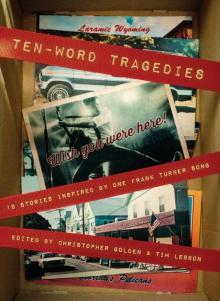 Ten-Word Tragedies
Ten-Word Tragedies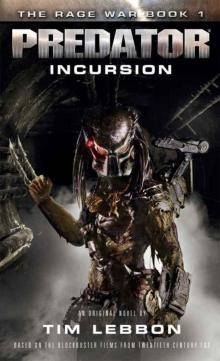 Predator: Incursion
Predator: Incursion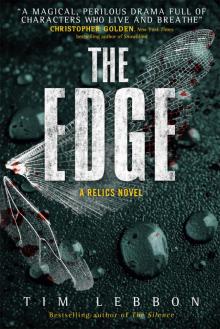 Relics--The Edge
Relics--The Edge Firefly
Firefly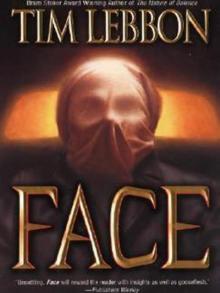 Face
Face Generations
Generations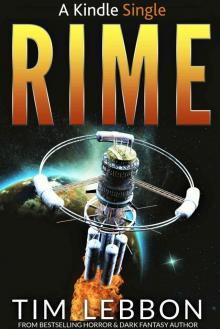 RIME (Kindle Single)
RIME (Kindle Single) Fallen
Fallen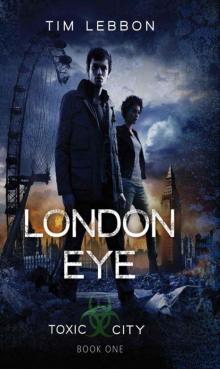 London Eye tc-1
London Eye tc-1 Kong: Skull Island
Kong: Skull Island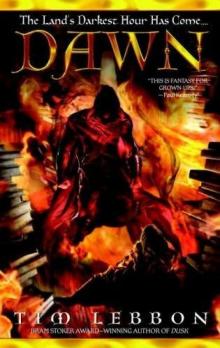 Dawn n-2
Dawn n-2 Into the Void: Star Wars (Dawn of the Jedi)
Into the Void: Star Wars (Dawn of the Jedi)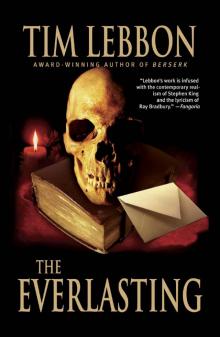 The Everlasting
The Everlasting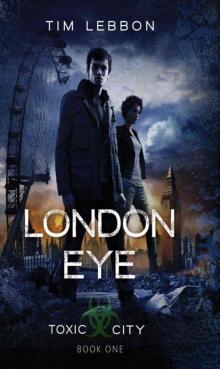 London Eye: 1 (Toxic City)
London Eye: 1 (Toxic City)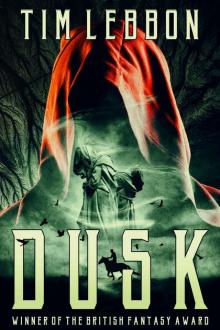 Dusk: a dark fantasy novel (A Noreela novel)
Dusk: a dark fantasy novel (A Noreela novel)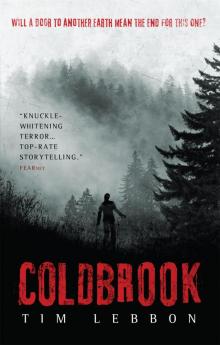 Coldbrook
Coldbrook Alien
Alien Dusk
Dusk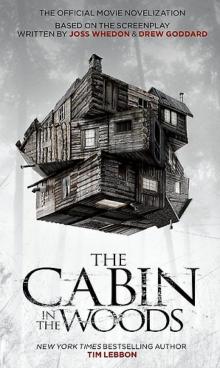 The Cabin in the Woods
The Cabin in the Woods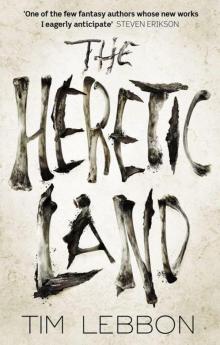 The Heretic Land
The Heretic Land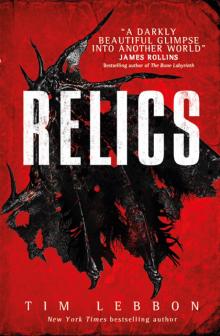 Relics
Relics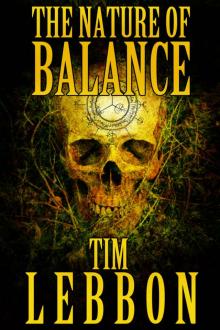 The Nature of Balance
The Nature of Balance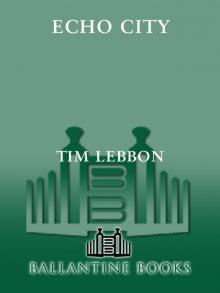 Echo City
Echo City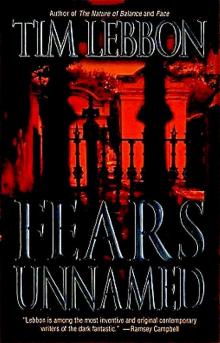 Tim Lebbon - Fears Unnamed
Tim Lebbon - Fears Unnamed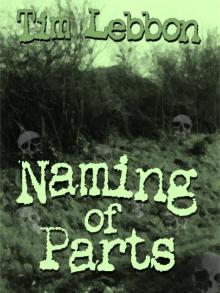 Naming of Parts
Naming of Parts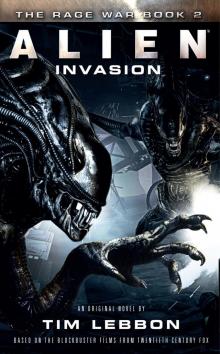 Alien--Invasion
Alien--Invasion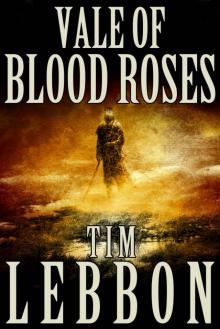 Vale of Blood Roses
Vale of Blood Roses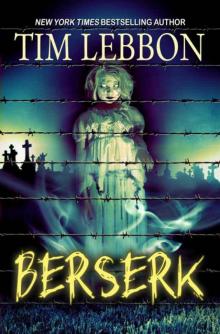 Berserk
Berserk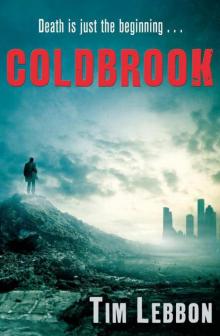 Coldbrook (Hammer)
Coldbrook (Hammer)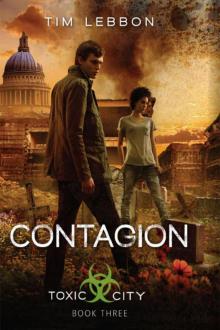 Contagion tc-3
Contagion tc-3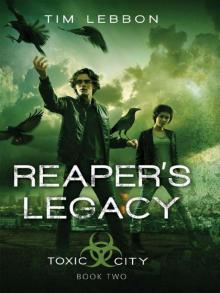 Reaper's Legacy: Book Two (Toxic City)
Reaper's Legacy: Book Two (Toxic City)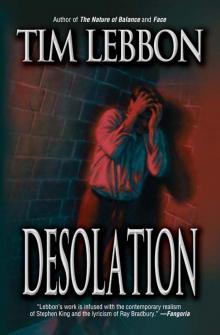 Desolation
Desolation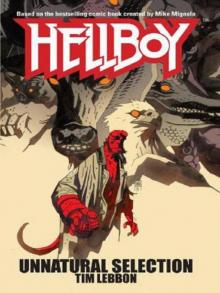 Unnatural Selection
Unnatural Selection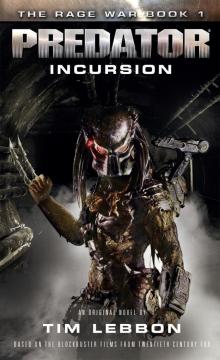 Predator - Incursion
Predator - Incursion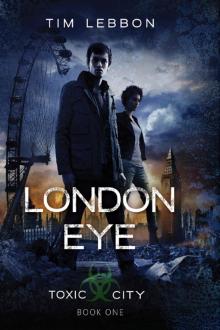 London Eye
London Eye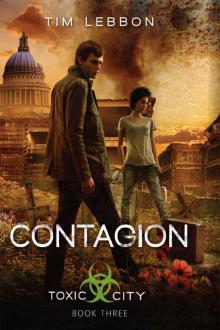 Contagion (Toxic City Book Three)
Contagion (Toxic City Book Three) The Silence
The Silence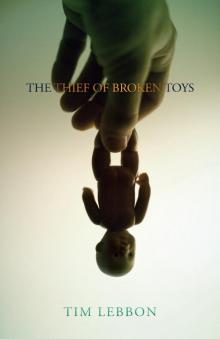 The Thief of Broken Toys
The Thief of Broken Toys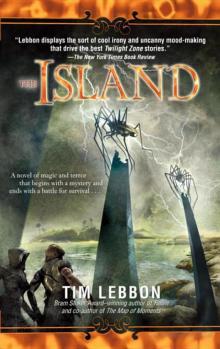 Tales of Noreela 04: The Island
Tales of Noreela 04: The Island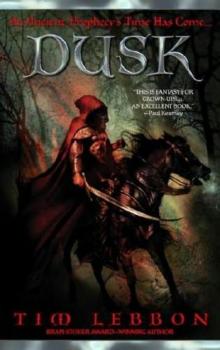 Dusk n-1
Dusk n-1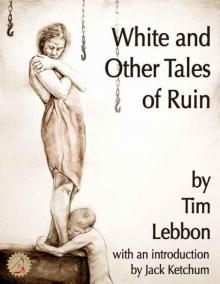 White and Other Tales of Ruin
White and Other Tales of Ruin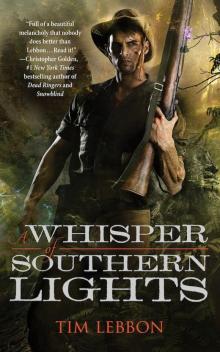 A Whisper of Southern Lights
A Whisper of Southern Lights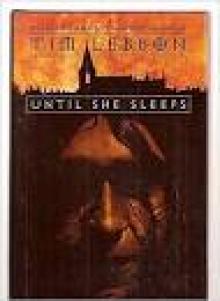 Until She Sleeps
Until She Sleeps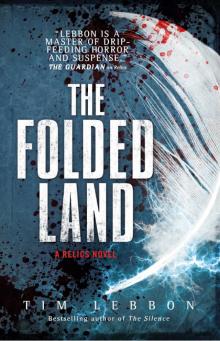 Relics--The Folded Land
Relics--The Folded Land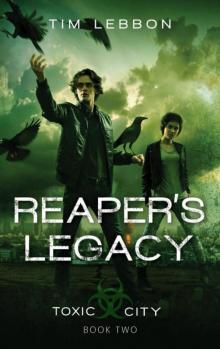 Reaper's Legacy tc-2
Reaper's Legacy tc-2 Alien: Out of the Shadows
Alien: Out of the Shadows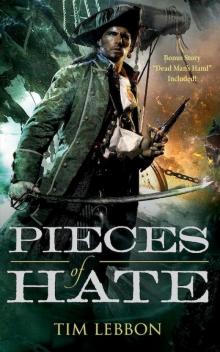 Pieces of Hate
Pieces of Hate X-Files: Trust No One
X-Files: Trust No One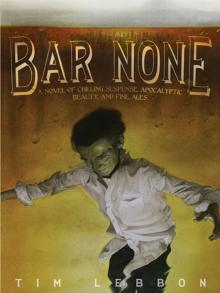 Bar None
Bar None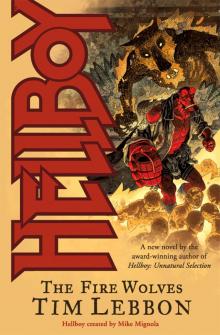 The Fire Wolves
The Fire Wolves